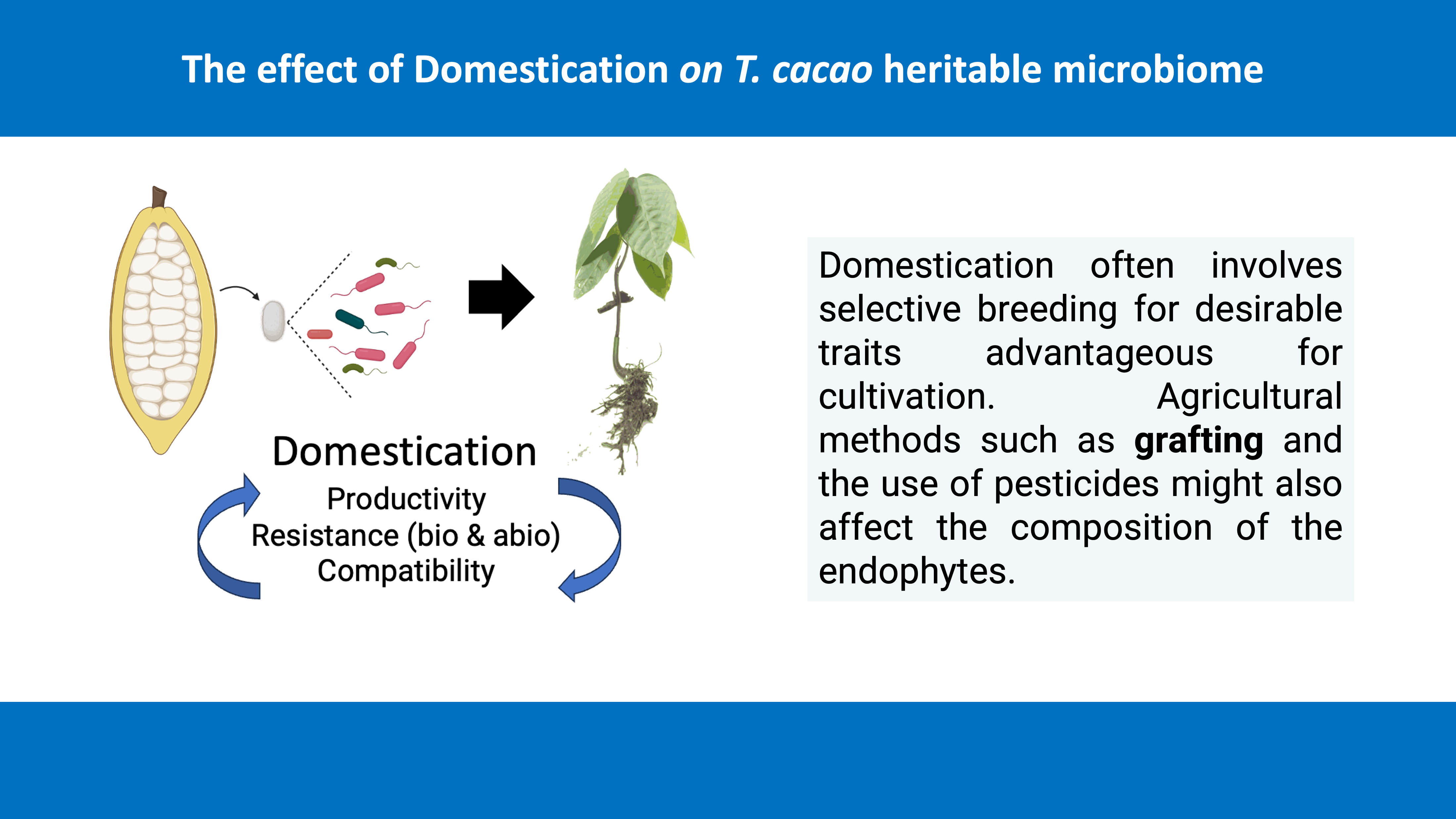Blog
Impact of Domestication on Seed-Borne Endophyte Diversity in Cacao

A recent study of plant-microbe interactions, which focuses on cacao, highlights the crucial role of seed-borne microbial endophytes in protecting plants from abiotic and biotic stresses.
The study, published in Microbial Ecology, was a collaboration between the Max Planck Tandem Group in Holobionts (Universidad Nacional de Colombia) and AGROSAVIA.
This recent study delves into the world of plant-microbe interactions, highlighting the crucial role of seed-borne microbial endophytes in protecting the plant during its development from abiotic and biotic stresses. Through a detailed exploration of the diversity and composition of these microbes in various commercial and local cacao genotypes, the researchers reveal how cacao domestication has influenced microbial diversity.
Among the findings, the study highlights a higher abundance of Pseudomonas and Pantoea genera in the local and AGROSAVIA-released genotypes. In comparison, commercial genotypes showed a higher number of bacterial species but in lower abundance. Additionally, all genotypes and plant tissues exhibited a high percentage of fungi from the Penicillium genus.
These results underscore how domestication may have increased bacterial diversity but also reduced the abundance of essential bacteria for seedling establishment and development. This study enhances our understanding of the relationship between perennial plants and their seed-borne microbiota!

